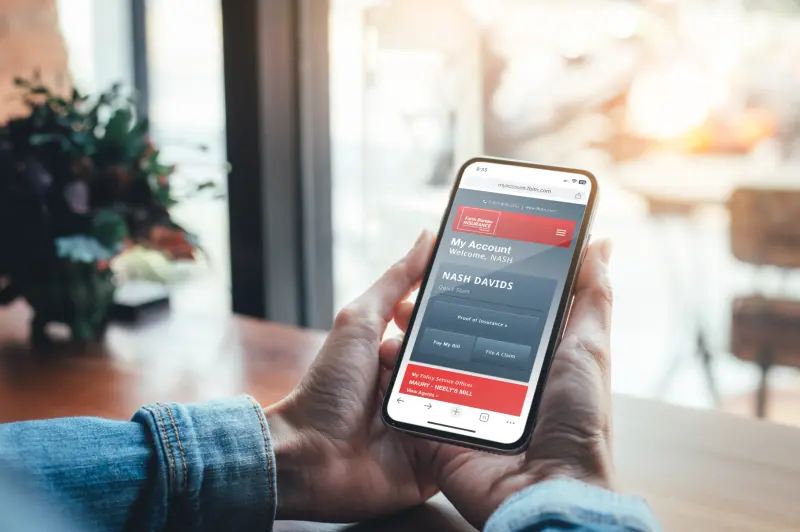Common Questions
Get answers to questions about billing, insurance, and more.
General
Auto
Home
Life
Business
General

Here for you whenever, wherever you go
Download you proof of insurance, pay bills, and manage all of your policies in one place with Farm Bureau MyAccount.

Here for you whenever, wherever you go
Download you proof of insurance, pay bills, and manage all of your policies in one place with Farm Bureau MyAccount.
LOG INCREATE AN ACCOUNT